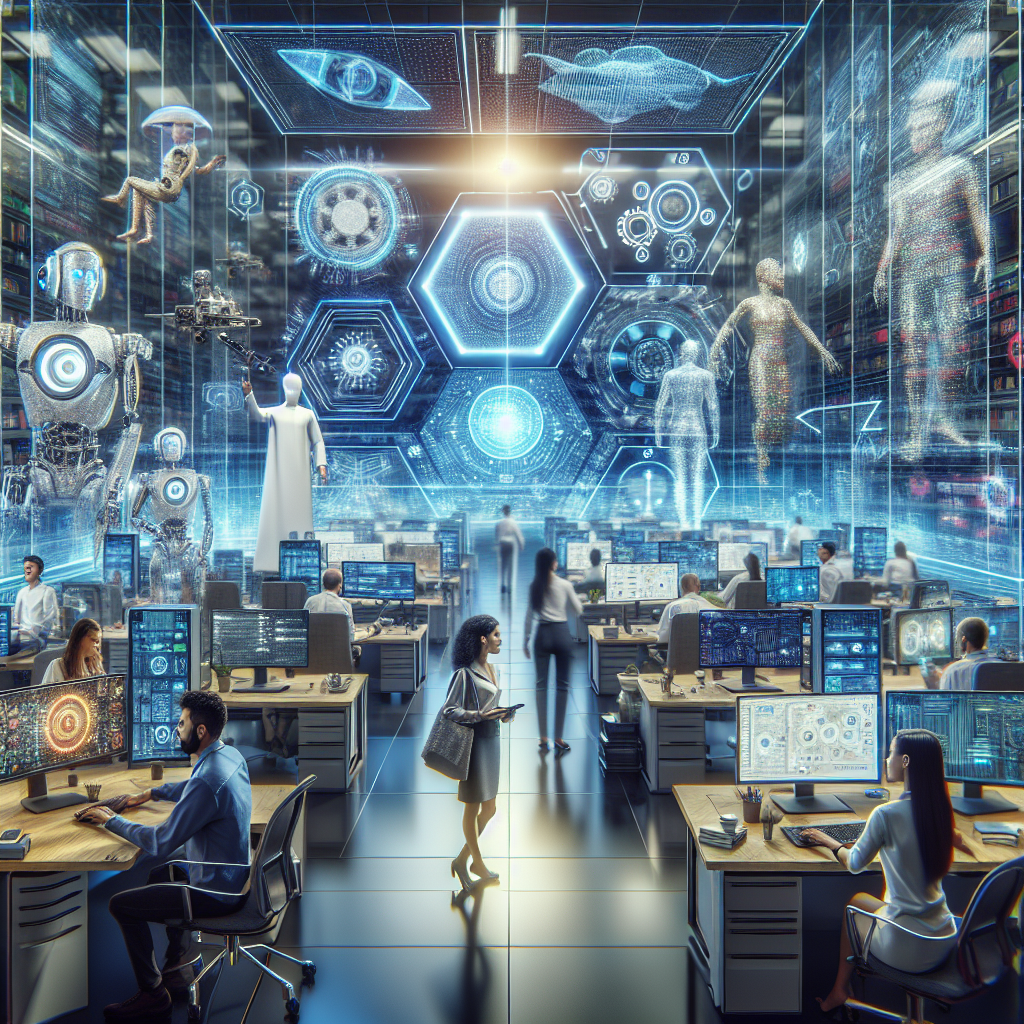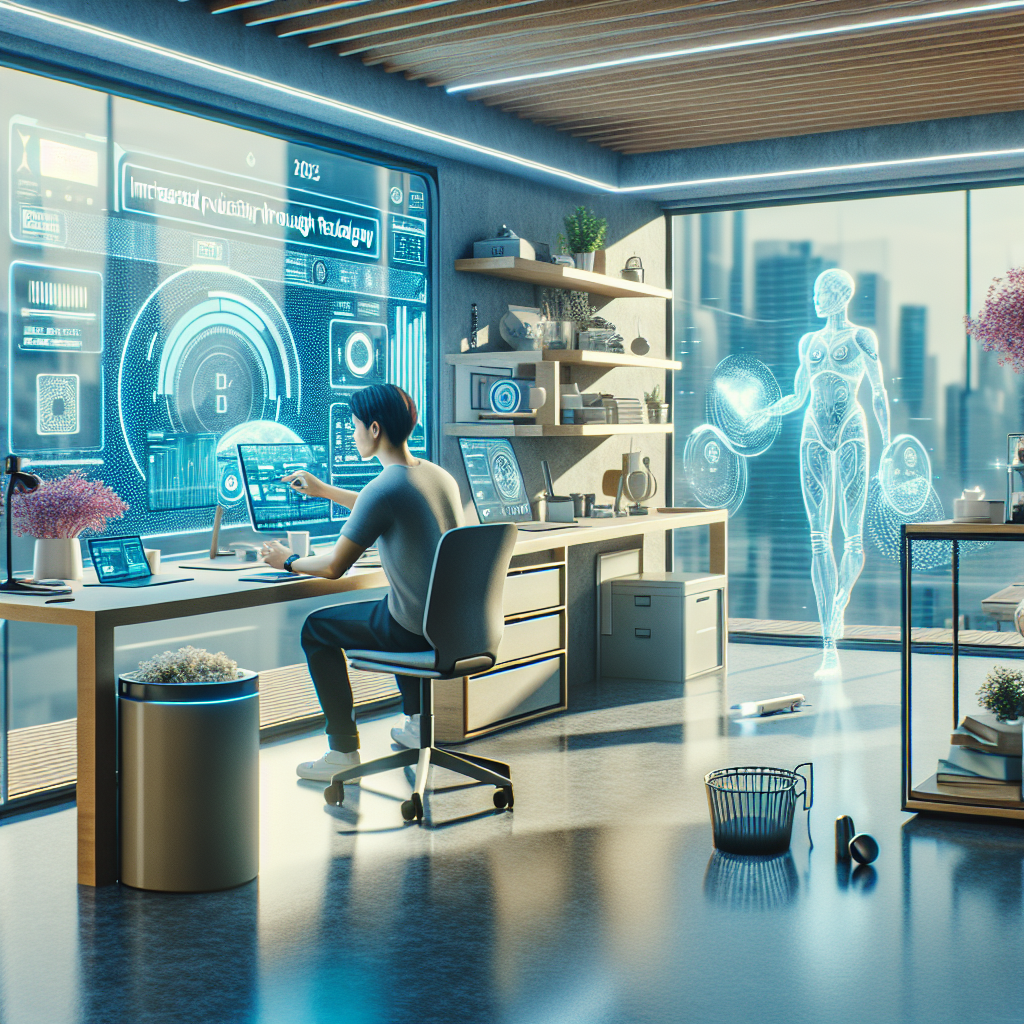The workplace is on the cusp of monumental change as artificial intelligence (AI) technologies accelerate their integration into daily operations. By 2025, the future work landscape will look drastically different from today’s environments. Automation, intelligent systems, and data-driven decision-making are no longer futuristic ideas but rapidly evolving realities reshaping job functions, required skills, and organizational structures. Understanding how AI will transform jobs helps businesses and workers prepare for a smoother transition into this new era of productivity and innovation.
Embracing AI in the workplace is not just about machines replacing humans; it’s about enhancing capabilities and creating new opportunities. The future work scenario will demand adaptability, continuous learning, and collaboration between humans and AI tools. This article explores the multifaceted impact of AI on jobs by 2025 and offers practical insights to navigate these exciting changes.
How AI Is Redefining Job Roles
Job Automation and Augmentation
AI-powered automation will handle repetitive, routine tasks across industries, freeing workers to focus on higher-value activities. For example, in customer service, AI chatbots can manage basic inquiries 24/7, while human agents address complex issues requiring empathy and judgment. This shift means many roles will evolve from task execution to oversight and creative problem-solving.
Augmentation refers to AI enhancing human performance rather than replacing it. In healthcare, for instance, AI algorithms assist doctors by analyzing medical images more quickly and accurately, enabling better diagnostics and treatment plans. Workers equipped with AI-driven tools can increase efficiency and decision quality across sectors like finance, manufacturing, and marketing.
Emerging Hybrid Roles
The fusion of human skills and AI capabilities will give rise to hybrid roles that blend technical know-how with traditional expertise. Job titles such as AI trainers, data ethicists, and algorithm auditors are already appearing as companies invest in developing and governing AI solutions.
These hybrid jobs require workers to understand AI’s workings and limitations, ensuring ethical implementation and alignment with business goals. Preparing the workforce for these roles involves upskilling in areas like data literacy, programming basics, and AI ethics.
The Shift in Required Skills for the Future Work
Emphasis on Soft Skills
As AI takes over routine cognitive functions, soft skills will become more crucial than ever. Creativity, emotional intelligence, adaptability, and critical thinking cannot be easily replicated by machines. Workers who excel in communication and collaboration will thrive alongside AI systems that handle data-centric tasks.
According to a World Economic Forum report, skills like problem-solving and leadership are gaining prominence as essential complements to technical proficiency in the future work environment.
Continuous Learning and Digital Literacy
AI’s rapid development means workers must engage in lifelong learning to stay relevant. Digital literacy, including familiarity with AI tools and data analysis, will no longer be optional. Organizations can support this by offering ongoing training programs and encouraging self-directed learning.
Examples of in-demand skills for 2025 include AI programming languages, data interpretation, and the ability to work harmoniously with automated systems.
Reshaping Business Processes and Organizational Structures
AI-Driven Decision Making
The future work will heavily rely on data-driven insights enabled by AI. From supply chain optimization to personalized marketing strategies, AI can analyze vast datasets far beyond human capability and generate actionable recommendations in real-time.
Leaders will shift towards interpreting AI outputs and integrating these insights into strategic planning, increasing transparency and agility within organizations.
Flattening Hierarchies and Enabling Remote Work
AI tools facilitate remote collaboration, making flexible and distributed work models more feasible. Workflow automation reduces managerial overhead, flattening traditional hierarchies into more decentralized, team-based structures.
This democratization of information and decision-making empowers employees at all levels while promoting innovation and responsiveness to market changes.
Addressing Ethical and Social Implications
Navigating AI Bias and Fairness
As AI shapes the future work, concerns about algorithmic bias and fairness must be addressed proactively. Biased AI systems can perpetuate inequalities in hiring, promotions, and customer interactions.
Employers and developers should prioritize transparent AI development practices, diverse training datasets, and ongoing audits to prevent discrimination and ensure equitable outcomes.
Balancing Job Displacement and Creation
While AI will automate certain jobs, it will also create new opportunities in tech development, AI maintenance, and human-AI interaction roles. Policymakers, educators, and businesses must collaborate to manage transitions, reskill displaced workers, and support inclusive growth.
Strategies such as government-funded training initiatives, public-private partnerships, and career counseling can facilitate this shift.
Preparing for the Future Work: Practical Steps for Employees and Employers
For Employees
– Embrace adaptability by seeking new skills related to AI, data analysis, and digital tools.
– Cultivate soft skills like communication, problem-solving, and creativity that complement AI capabilities.
– Participate in continuous learning through online courses, workshops, and certifications.
– Engage with AI as a collaborative partner rather than a competitor to enhance productivity.
For Employers
– Invest in employee training programs focused on AI literacy and digital transformation.
– Integrate AI ethically and transparently, involving employees in adoption processes.
– Redesign workflows to leverage human-AI collaboration, maximizing strengths of both.
– Foster a culture of innovation and agility to navigate ongoing technological changes.
The future work landscape by 2025 promises transformation fueled by AI’s expanding role. By understanding these changes and proactively adapting, both individuals and organizations can harness AI’s potential to boost efficiency, creativity, and growth. Embracing this future opens doors to enhanced job satisfaction and new career paths.
To explore how AI automation can benefit your business and workforce, contact us at https://automatizacionesaiscend.com and start shaping your future work today.



